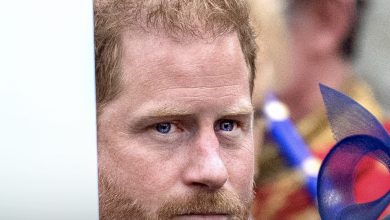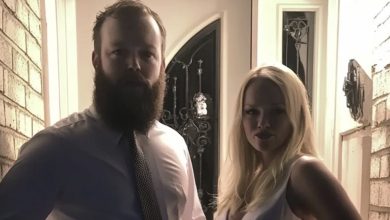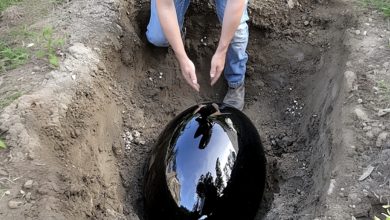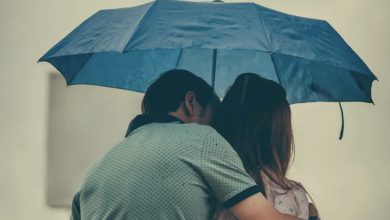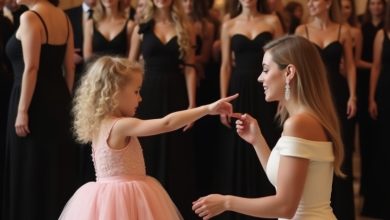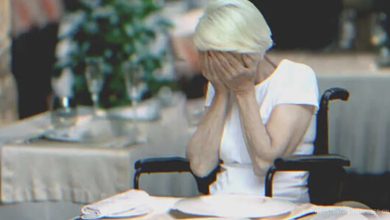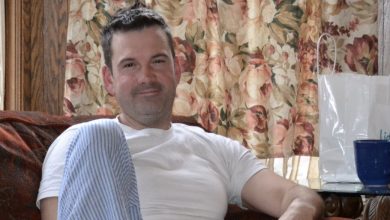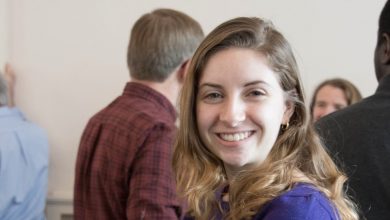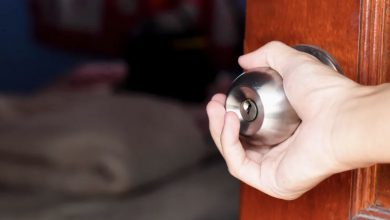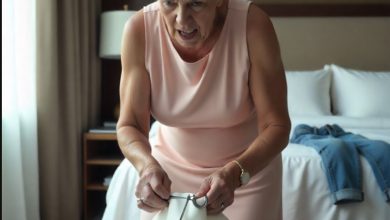I Almost Started the Engine Until a Homeless Man Yelled for Me to Stop – Minutes Later, I Walked Into the Lawyer’s Office and Saw Her Face Fall
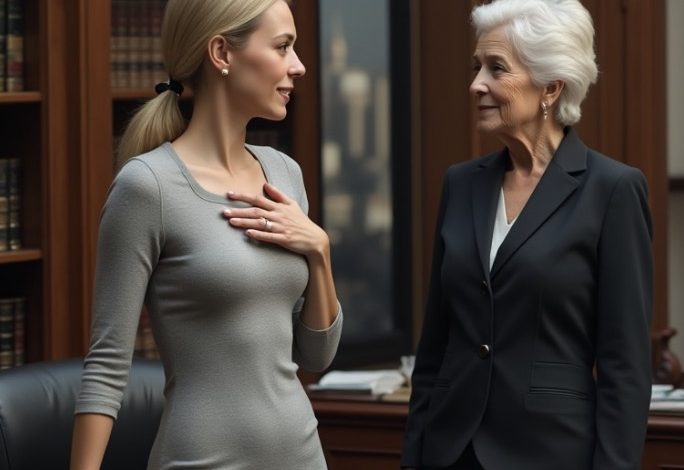
I was driving to Los Angeles for my husband’s will reading, trying to prepare myself to sit in a cold office and hear our life turned into numbers and papers, when a scream cut through the quiet street.
“Ma’am, don’t start that car!”
My hand froze on the key.
I turned and saw a thin, dirty man running toward me. His clothes were torn, his hair greasy, his face tired. But his eyes were clear and full of fear, not madness. He came right up to my window and slapped his hands on the glass.
“Your daughter-in-law was here last night!” he shouted. “Please, don’t start it. I saw what she did.”
My blood ran cold. Adriana. My daughter-in-law.
I lowered the window just a little. My voice came out weak. “What did you see?”
He stepped back, shaking. “She and a man in a suit opened the hood. They had a little bag with them. I sleep on that corner. Nobody looks at me, but I see everything.”
The car key slipped from my fingers and fell into my lap. In that moment, everything about Julian’s “sudden” death, three weeks earlier, came back to me. The “heart attack” that never felt right. His perfect health. The way he died in the hospital with only Adriana by his side.
I got out of the car on unsteady legs and opened the hood. One cable had been cut cleanly, like with a knife, not worn down. Hidden near the engine was a small plastic bag filled with clear liquid that smelled like fuel.
If I had started the engine, the car could have exploded.
My own daughter-in-law had tried to kill me.
I leaned against the car to keep from collapsing. The man watched me quietly.
“What’s your name?” I asked.
“People call me Skinny,” he said.
“Skinny… thank you. Thank you for coming.” I gave him all the cash in my purse. “I’ll come back. When I do, I want you to tell me everything you saw.”
I called a taxi. Adriana thought I would die that morning. Instead, I was going to walk into that law office and look her straight in the eye.
When I entered, the room smelled like dust and old coffee. My son Michael stood up right away and hugged me tightly. He looked exhausted.
“Mom… I’m glad you’re here.”
Adriana sat beside him, dressed in a simple black dress, hair pulled back, the perfect grieving widow’s daughter-in-law. When she saw me, her eyes widened for half a second. Shock. Fear. She hadn’t expected me to arrive.
Then the mask slid back into place.
“Mama Elena,” she said softly, hugging me. “We were so worried.”
Her hands were cold. Her perfume was too sweet. I didn’t return the smile.
Mr. Thompson, the lawyer, opened a folder. “Let’s begin,” he said. He read that Julian left me the main house and his personal bank accounts. That part made sense.
Then he adjusted his glasses.
“…and according to the change made on the twelfth of August last year,” he continued, “the properties in downtown Los Angeles, the warehouse in Anaheim, and the apartment in Beverly Hills are left to Mrs. Adriana Carter Hughes.”
My head spun. Those buildings were worth millions.
Julian would never have done that without telling me.
Adriana placed her hand on Michael’s and gave me a soft, fake look. “Elena, I know this is a shock,” she said. “But Julian trusted me. He wanted me to protect the family.”
Her voice was sugar over poison.
Later, back home, the whispers started. At the market. At the bakery. People saying it was “strange” how quickly Julian died. How Adriana refused an autopsy. How she was already owner of several properties.
Then one evening, my phone rang.
“Mrs. Hughes? This is Dr. Vargas. I treated your husband at St. Jude Hospital.”
“Yes,” I said, my heart racing. “Doctor?”
“I asked questions at the time,” he said quietly, “but no one wanted to listen. Your husband’s blood tests showed dangerous potassium levels with no medical explanation. His heart didn’t simply stop. I believe something was given to him. And your daughter-in-law was the only person constantly alone in his room.”
He wanted to meet in person. At the café across from the hospital, he showed me copies of Julian’s tests and told me Adriana had refused an autopsy and pushed for a fast cremation. My suspicions became certainty: Julian had not died naturally.
The next morning, I called Don Sam, our old mechanic. He checked the car and confirmed everything: the cable was cut on purpose, and the plastic bag was placed in a way that would have caused an explosion after a few tries starting the engine.
“Someone wanted you dead, Elena,” he said. “This wasn’t an accident.”
I gathered everything—photos of the engine, Skinny’s story, Dr. Vargas’s report, strange bank transfers in Julian’s and Adriana’s names that I found hidden in my husband’s desk. Then I called an old friend of Julian’s, a man named Robert Sedano, now working as a private investigator.
I told him everything.
He dug deeper and found that Adriana had changed her name, had a fraud case in her past, and had been moving large sums of money during the last year, including while Julian lay in the hospital. He discovered that the “updated will” hadn’t been signed by Julian at all—the signature was forged. The lawyer present at the will reading, George solace, was meeting regularly with Adriana in secret.
Robert set up hidden cameras in my house: in the living room, the dining room, the kitchen. Then he told me the hardest part: I had to invite Adriana and Michael to dinner and pretend to forgive her.
So I did.
That night, over wine and food, I played my role. I talked about Julian, about trust, about the strange “car problem,” about the bank transfers. I watched Adriana’s mask slip, little by little. Her smile got tighter. Her answers got shorter.
Then I mentioned the homeless man who saw her near my car at night.
For a moment, her face went empty—no expression at all.
Soon after, I laid out the photos Robert had taken of her and George solace meeting in secret.
Michael’s world started to crack. He looked at her differently. He asked questions she didn’t want to answer. Finally, cornered, she snapped.
She mocked Julian. Called him weak. Admitted she had “guided” his choices. Said she regretted not “finishing the job” with me. Then, in a moment of pure madness, she pulled a small knife from her purse and came at me.
Before she could reach me, the front door burst open. Police officers, working with Robert, stormed in, weapons drawn. They saw everything. The cameras had been streaming live.
Adriana was arrested on the spot.
What came after was long and painful: investigations, court, months of hearing my husband’s name mixed with words like “murder,” “fraud,” and “forgery.” But in the end, the truth stood. Adriana and George were both found guilty. The fake will was thrown out. The properties returned to my name.
Michael apologized through tears. I forgave him—not because I forgot, but because he had been manipulated and because he is my son.
Now, when I think about that morning—the dirty hands on my car window, the terrified voice yelling, “Don’t start the engine!”—I know one thing for sure:
Julian didn’t leave me alone in this fight. Through a stranger, through documents, through my own stubbornness, he helped me see the truth.
And I, Elena Hughes, the woman Adriana thought was weak and easy to erase, am still here. Not broken. Not silent.
Still standing.

